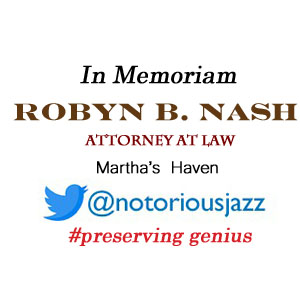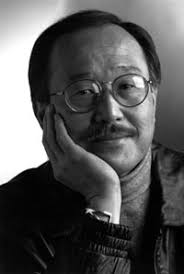
Jazz Poems
FILLING THE GAP When Bird died, I didn’t mind I had things to do— polish some shoes, practive a high school cha-cha-cha. I didn’t even know Clifford was dead: I must have been lobbing an oblong ball beside the gymnasium. I saw the Lady right before she died— dried, brittle as last year’s gardenia. I let her scratch an autograph. But not Pres. Too bugged to boo, I left as Basie’s brass booted him off the stand in a sick reunion— tottering , saxophone dragging himmlike a stage-hook. When I read Dr. Williams’ poem, “Stormy,” I wrote a letter of love and praise and didn’t mail it. After he died, it burned my desk like a delinquent prescription… I don’t like to mourn the dead: what didn’t, never will. And I sometimes feel foolish staying up late, trying to squeeze some life out of books and records, filling the gaps between words and notes. That is why I rush into our room to find you mumbling and moaning in your incoherent performance. That is why I rub and squeeze you and love to hear your live, alterable cry against my breast Lawson Fusao Inadafrom Jazz Poems ~ Selected and Edited by Kevin Young
More Posts: book,classic,collectible,history,jazz,library,poet
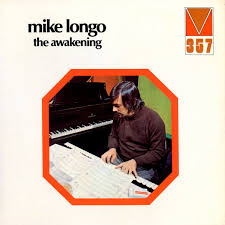
Daily Dose Of Jazz…
Michael Josef Longo was born in Cincinnati, Ohio on March 19, 1937 to parents who had a musical background. His father played bass, his mother played organ at church, and his music training began at a young age. Around four years old he heard Count Basie and Sugar Chile Mike, and the latter led him to begin researching boogie woogie bass lines. His parents took him for formal lessons at the Cincinnati Conservatory of Music at four. He moved to Fort Lauderdale, Florida soon after and by the age of 12, he won a local talent contest.
He received a scholarship from the Ft. Lauderdale Symphony Orchestra in 1955, a Downbeat Hall of Fame Scholarship in 1959 His career began in his father’s band, then Cannonball Adderley helped him get gigs of his own. Their working relationship pre-dated Adderley’s emergence as a band leader, having approached the white teenager to be the pianist at his black church in a town that was largely segregated. This led to recordings with Cannonball in the mid-1950s but he was too young to go to clubs with him. Longo played at Porky’s which was later portrayed in the movie of the same name. He would go on to receive his Bachelor of Music degree from Western Kentucky University.
He was a fan of Oscar Peterson from a young age and he studied with the pianist from 1961 to 1962. He received a National Endowment for the Arts Grant in 1972. During the 1960s he began to lead the Mike Longo Trio, which would remain active for the next 42 years. He would go on to play with Roy Eldridge, Paul Chambers and Dizzy Gillespie, who first heard him playing with Red Allen at the Metropole. He would become musical director for the Dizzy Gillespie Quintet and later the pianist for the Dizzy Gillespie All-Star Band. From 1966 until 1993 his music career would be linked to Gillespie who he was with on the night he died and later delivered a eulogy at his funeral.
Longo also taught a master class to upcoming jazz musicians, and his big band, the New York State of the Art Jazz Ensemble, would play and provide upcoming musicians a chance to learn on stage. A big part of his mission was to re-establish the apprenticeship relationship in teaching jazz.
He recorded two dozen albums as a leader, four with Dizzy and one with LeeKonitz. In 2002 he was inducted into Western Kentucky University’s Wall of Fame in 2002.
Pianist, composer, educator and author Mike Longo died in Manhattan from complications of Covid~19, three days after his 83 birthday on March 22, 2020.
More Posts: author,composer,educator,history,instrumental,jazz,music,piano
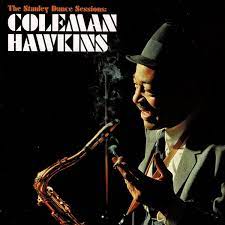
Daily Dose Of Jazz…
Stanley Frank Dance was born in Braintree, Essex, England on September 15, 1910. As a youth, he claimed he was “fortunate” to have been sent to boarding-school at Framlingham College, where he first encountered American recordings of bands fronted by Jelly Roll Morton and Benny Moten, among others. While working in the family business he continued to pursue his interest in music and soon learned of Louis Armstrong, Fats Waller and Duke Ellington through the music newspaper Melody Maker.
Focusing on the music of black bands he started writing opinion pieces about the jazz scene for Hugues Panassié’s French-language magazine Jazz Hot in 1935, modeling his articles on those written by John Hammond. A 1937 three week visit to New York City’s jazz scene had Stanley at the Savoy Ballroom and similar venues in the evenings, listening in on recording sessions during the day and an introduction to Canadian writer Helen Oakley.
Joining the RAF he was assigned to the Royal Observer Corps in East Anglia, and for a period of nine years his opportunity to listen to Black American bands was curtailed. He missed the start of Bebop, which developed during the war and a recording-musicians’ strike in the US, but he found Oakley when the American OSS assigned her to London late in the war.
Dance and Oakley married in 1947, resided in England until 1959 then moved to Connecticut. He wrote a monthly jazz column for Jazz Journal, he coined the term mainstream to describe those in between revivalist Dixieland and modern bebop. In 1958, Decca’s Felsted Records commissioned him to produce a series of New York recordings of Coleman Hawkins, Cozy Cole/Earl Hines, Billy Strayhorn/Johnny Hodges, Buddy Tate, and several others, which were released under the collective title Mainstream Jazz.
Leaving England for Connecticut with a commission from EMI’s English Columbia label to make proprietary jazz recordings, Stanley used his and Helen’s contacts with the Ellington players to produce seven albums that were quite successful in Europe. He also assembled two albums for RCA as well as writing liner notes and shared a 1963 Grammy with Leonard Feather for his liner notes to The Ellington Era, Vol. 1.
He went on to publish five books on jazz, write articles for several magazines, helped Duke Ellington write his autobiography and is credited with helping to revive the careers of several musicians including Helen Humes and Earl Hines. By 1979 the Dances moved to Southern California where he consulted with Ken Burns during the development of his documentary television series Jazz, served as book editor for Jazz Times and donated their journals, photographs, and recordings to the Yale Music Library’s Special Collections.
Over his career, his priority was advocating for the music of black ensembles performing sophisticated arrangements, based on Swing-era dance music. Jazz writer, business manager, record producer, and historian Stanley Dance who was personally close to Duke Ellington which put him in a position to author official biographies, transitioned from pneumonia at 88 on February 23, 1999 in Vista, California.
More Posts: historian,history,instrumental,jazz,music,producer,writer
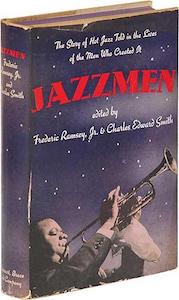
Daily Dose Of Jazz…
Charles Edward Smith was born on June 8, 1904 in Thomaston, Connecticut He began to collect early hot jazz records in the 1920s and worked with William Russell, Eugene Williams, John Hammond, Hugues Panassié and Charles Delaunay in the Hot Record Society. It was from this society that the jazz label HRS Records sprang in 1937 and with Steve Smith he was editor of the jazz magazine Hot Record Society Rag.
With essays in journals such as the Symposium, Daily Worker and Esquire, Charles was among the early jazz critics in the 1930s. Collaborating with Frederic Ramsey he published the book Jazzmen, and, with Wilder Hobson’s American Jazz Music, was one of America’s first jazz books. The latter book included articles on groups like the Austin High School Gang and interviews from early jazz musicians like Willie Cornish, Papa Jack Laine, Leon Roppolo and Nick LaRocca.
Smith and Ramsey argued that then-popular swing was rooted stylistically in blues and traditional jazz. In the course of the research on the book, the interviewed musicians mentioned the name Bunk Johnson again and again. This led to the then-forgotten trumpeter of New Orleans Jazz being rediscovered by Bill Russell in 1942.
With the 1942 Jazz Record Book, an attempt was made to generate a canon of important jazz records, which was later taken up by many other writers, including Marshall Stearns’s The Story of Jazz, Joachim-Ernst Berendt/Günther Huesmann’s jazz book , Barry Kernfeld’s Encyclopedia of Jazz, and Allen Lowe’s That Devilin’ Tune.
Smith also wrote for The New Republic, the magazine Jazz Information, and wrote a series of liner notes for Folkways Records that included Negro folk music, folk blues, early and modern jazz albums. He also wrote the accompaniment text for the LP edition of John Hammond’s Concert Series, From Spirituals to Swing – Carnegie Hall Concerts, 1938/39 on Vanguard Records.
In the opinion of the International Society of Jazz Research, Smith was one of the most important early serious jazz critics, alongside Hugues Panassié, Winthrop Sargeant, Wilder Hobson, Don Knowlton, and Aaron Copland. Jazz author, editor and critic Charles Edward Smith transitioned on December 16, 1970 in New York City.
More Posts: author,critic,editor,history,instrumental,jazz,music
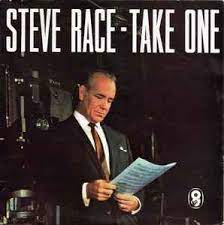
Daily Dose Of Jazz…
Stephen Russell Race was born April 1, 1921 in Lincoln, England and learned the piano from the age of five. His education from 1932 to 1937 was at Lincoln School, where he formed his first jazz group. At sixteen, he attended the Royal Academy of Music, studying composition under Harry Farjeon and William Alwyn. After leaving the academy, he wrote occasional dance band reviews for Melody Maker and, in 1939, joined the Harry Leader dance band as pianist, succeeding Norrie Paramor.
Race joined the Royal Air Force in 1941, and formed a jazz/dance quintet. After World War II, he began a long and productive career with the BBC, where his ready wit, musicianship and broad musical knowledge made him a much sought after musical accompanist for panel games and magazine shows, such as Whirligig and Many a Slip.
Simultaneously he played in the Lew Stone and Cyril Stapleton bands, and arranged material for Ted Heath. By 1949 The Steve Race Bop Group recorded some of the first British bebop records for the Paxton label. These included four sides with Leon Calvert, Johnny Dankworth, Peter Chilver, Norman Burns, Jack Fulton. He also developed a sideline arranging player piano rolls for the Artona company.
the 1950s to the 1980s, he presented numerous music programs on radio and television. Steve was the chairman of the long-running light-hearted radio and TV panel game My Music which ran for 520 episodes from 1967 to 1994. He also presented Jazz For Moderns and Jazz 625 for the BBC in the 1960s.
As a composer, he produced a number of pieces in the jazz, classical and popular idioms. Blue Acara, Esteban Cera, Faraway Music, Nicola, Ring Ding and Pied Piper aer just a few of his well known compositions. He appeared as pianist/bandleader in the 1948 film Calling Paul Temple and with Sid Colin wrote two of the songs performed by Celia Lipton. He also wrote other scores for films. His autobiography, Musician at Large, was published in 1979, and was inducted into the Order of the British Empire (OBE). Pianist, composer, radio and television presenter Steve Race had his first heart attack in 1965 and transitioned from a second attack at his home in Great Missenden, Buckinghamshire, on June 22, 2009.
More Posts: bandleader,composer,history,instrumental,jazz,music,piano





